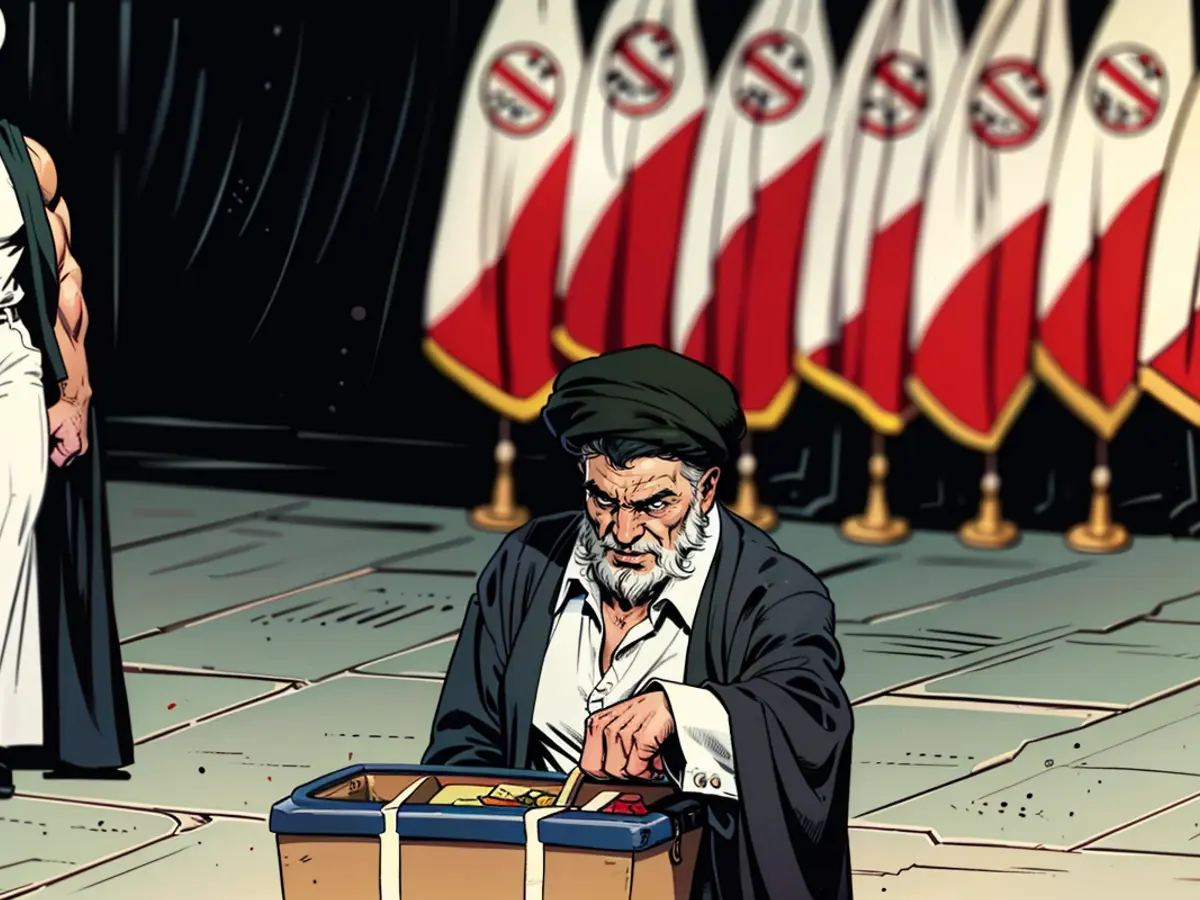Three conservatives and one reformer are running for president in Iran
The election day brings joy and luck for us Iranians, said the spiritual leader of the country, Ayatollah Ali Khamenei, during his voting in Teheran. "We urge our esteemed people to take this seriously and participate. I see no reason to hesitate," he added.
Sixty-one million Iranian women and men can participate in the voting, which lasts at least until 18.00 local time (16h30 CET). In previous elections, the duration was extended. The official results are expected as early as Sunday. Preliminary calculations may already be available on Saturday.
If no candidate receives an absolute majority of the votes, there will be a second round of voting on July 5. This has only happened once since the 45-year existence of the Islamic Republic, during the 2005 election.
The ultraconservative Council of Guardians has approved six candidates, of whom only four remain after the withdrawal of two ultraconservative candidates on Thursday. A reformer, parliamentarian and former health minister, Peseschkian, is also running.
The former presidents Mohammad Khatami and Hassan Rouhani, both from the moderate camp, called for Peseschkian to be elected. The 69-year-old doctor campaigned for the revival of the nuclear deal with the West during the campaign, hoping for the lifting of sanctions against Iran that would boost the country's economy. "Should we remain eternally enemies of America or do we want to solve our problems with the country?" Peseschkian asked during the campaign.
The ultraconservative candidate and former atomic negotiator Said Jalili, on the other hand, criticized the moderates for the 2015 nuclear deal. The treaty, from which the US withdrew in 2018, brought no benefits to Iran, he said.
Furthermore, the conservative parliament speaker Mohammad-Bagher Ghalibaf and the cleric Mostafa Pourmohammadi are running. Ghalibaf and Jalili are favored among the supporters of the current government line.
The originally planned election for 2025 was brought forward following the death of the previous president Ebrahim Raisini in a helicopter crash in May. The new election comes in turbulent times: The escalating Middle East conflict has heightened tensions in the region and the country is struggling with the economic consequences of international sanctions.
Political power in Iran has been held by the spiritual leader of the country since the revolution in 1979. The president is responsible for implementing the political guidelines set by Khamenei.
- In the upcoming Presidential election in Iran, Ayatollah Ali Khamenei urged the citizens to participate seriously and without hesitation.
- The six candidates approved by the conservative Council of Guardians for the Presidential election include a reformer, Peseschkian, who supports reviving the nuclear deal with the West.
- The ultraconservative candidate Said Jalili criticized the moderates for the 2015 nuclear deal during the Presidential election campaign.
- Mohammad-Bagher Ghalibaf, the conservative parliament speaker, and Mostafa Pourmohammadi are also running in the Presidential election, which was brought forward due to the death of the previous president, Ebrahim Raisini.
- If no candidate receives an absolute majority in the Presidential election, a second round will be held on July 5, as happened once before in 2005.
- The original election date for 2025 was changed due to the turbulent times the country is facing, including heightened regional tensions and economic consequences of international sanctions.
- Ayatollah Ali Khamenei, the spiritual leader of Iran, has held political power since the revolution in 1979 and sets the political guidelines for the president to implement.







